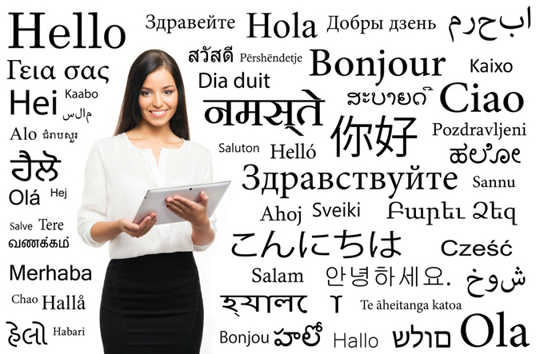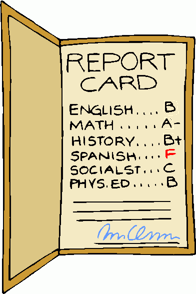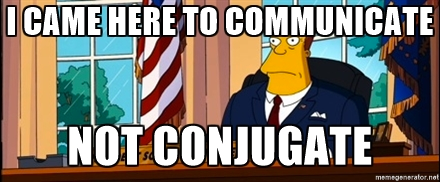It’s easier than you think to learn another language especially since you already know one.
Why Most of Us Failed in High School
The majority of us have failed to learn a second language even though we’ve all learned our first.
Everyone on the planet is fluent in at least one language. So we all have what it takes to learn at least one.
So why is learning a second language so hard?
It’s because it’s taught wrong.
We were placed in a cold classroom and expected to speak in front of our peers in a language we didn’t know. It’s bad enough that public speaking is the number one fear for people and that’s in their native tongue.
Now imagine trying to speak in a foreign one.
And when we made mistakes, we were punished with red marks on the page and low grades. And unlike most classes, our failures in a language class are public. This conditioned us NOT to speak for fear of looking stupid or saying something wrong.
Imagine teaching babies to speak this way. No one would ever learn to speak.
Learning Like a Baby
As babies, we learned our first language by immersion, listening and mimicking every single day. All we could do was listen, 24 hours a day, 7 days a week. And not once, did we receive a grammar lesson from anyone.
We didn’t study grammar books. Endlessly conjugate verbs. Memorize vocabulary. We didn’t get marked down every time we made a mistake.
And that’s why we learned it so well.
But as adults, we cannot afford to go back to this approach. We don’t have the time. And the good news is that we don’t need to because we can actually learn faster.
We can use our working vocabulary to accelerate our learning.
Learn it Like a Video Game
Every time you start a new video game, you have to learn the controls. The first time you play, it takes a while to learn the controls. But the next game and next are easier since there are many similarities.
But think back to how video games teach you the controls, or at least the good games. They give you just enough training so that you can start playing. That was your goal. To play a video game.
So the sooner you’re playing, the sooner you’re having fun. And isn’t that the whole point of the exercise? And if you’re having fun, you don’t even realize that you’re still learning how to play the game. It just happens.
And before you know it, you just react without thinking. And you’re doing things — hard things — with ease. How did you get so good? By practicing. But it didn’t feel like practicing because you were too busy having fun to realize that you were practicing.
Now imagine if video games taught you how to play the way languages are traditionally taught. They’d have you practice jumping for 20 minutes. Then crouching. Then tomorrow, more jumping and then sneaking. Then the next day… Well, you get it.
Learning a language is the same. You came here to speak. Not to conjugate. Or memorize. So the faster you can get to speaking, the better.
You need just a tiny bit of starting vocabulary and then you should start conversing. Isn’t that the whole point of the exercise? Isn’t that the goal?
So the sooner you get to speak, the sooner you’re having fun. And when you’re having fun, you won’t quit. And if you don’t quit, you’re going to learn. And you’ll learn much faster than the traditional boring methods.
You need to put in the time to learn anything. Imagine if that time was always fun. Before you know it, you’re speaking another language.
By the way, this is how music should be taught. But that’s a subject for another post.
But What About Grammar and Vocabulary?
Grammar is clearly important. But think back to how you learned grammar originally. And I don’t mean taking an English class in grade school. That’s just giving names and categories to things you already knew.
You learned grammar naturally by hearing it.
The same goes for Vocabulary. You hear words in context and surmise their meanings. You still do this in your native language. For example, if you don’t know what the word surmise means in the above sentence, you can figure out what it means because you understand all the other words.
Your parents didn’t drill into you the right way to use, go, went, going, gone. They didn’t run around the room pointing at objects saying their names. But you learned it before Kindergarten.
You learned all the necessary elements of grammar and basic vocabulary by experience and repetition. How? By listening and speaking.
This is the natural way of learning language.
Let me Tell You a Story…
My plan at this point in the article was to recommend multiple products that support this accelerated approach to language learning.
Unfortunately, I couldn’t find any.
Except for one. And in all honesty, it was developed by a friend of mine, Luke Pancoe with YLanguage.
So here’s his story…
He struggled for years to learn Spanish in grade school and failed. Frustrated, he took Latin in high school so he didn’t have to worry about speaking in front of anyone.
Then in college, Luke went to study abroad in Florence, Italy with no intention to learn the language since he thought everyone would speak English. But he was wrong. Fewer people spoke English than he expected.
Even though he couldn’t speak the language, he fell in love with Italy and its people and wanted desperately to communicate with Italians. He knew that this was holding him back from truly experiencing Italy like the Italians do.
Luke knew that the classroom approach didn’t work. So when he got home, he began a regimen over the next year watching YouTube videos, going to Italian meetups, talking with Italians online, reading grammar books, using different language apps like Duolingo and watching TV and films in Italian.
He was spending 7 to 8 hours a day for months in a desperate attempt to learn Italian. And in just under a year, he finally became fluent.
Armed with his new skill, he returned to Italy and it was like he was visiting a whole new world. For 3 weeks, he spoke only Italian. Being surrounded by his Italian friends and being able to easily converse with them, he felt what it’s like to be an Italian.
Next he learned Spanish and French. But this time it was much faster and required less effort. He was conversational in French in 4 months and Spanish in 3 months. Each time he learned a new language, he was able to optimize his process.
After learning 3 languages, Luke realized that he could teach anyone to be conversational in 3 months in any language by only dedicating 30 to 60 minutes a day. So he spent the next 2 years developing an online course called Italian in Your Pocket.
His system is basically everything I’m advocating in this article. It concentrates on speaking and listening. The very first week, his students are listening to conversations at normal speed and speaking.
Students, who put in the 30 to 60 minutes a day, are able to hold basic conversations totally in Italian with their fellow students in as little as 3 to 4 weeks.
The Language Revolution is Here
These results prove that traditional methods of classroom-style teaching can be greatly improved upon. Grammar and vocabulary do not need to be the center point for new students.
Hearing and speaking as soon as possible accelerates students’ understanding and speaking abilities in the new language. These quickly acquired skills reward students early and often, making the process of learning highly enjoyable. And because it’s enjoyable, students will want to continue learning. This positive feedback accelerates the learning process.
We need to have a real revolution in how we teach languages. Academia has failed nearly every student it’s encountered. We all have the ability to speak multiple languages and speak them well.








Great post, keep posting Spoken English Classes In Pune
ReplyDelete